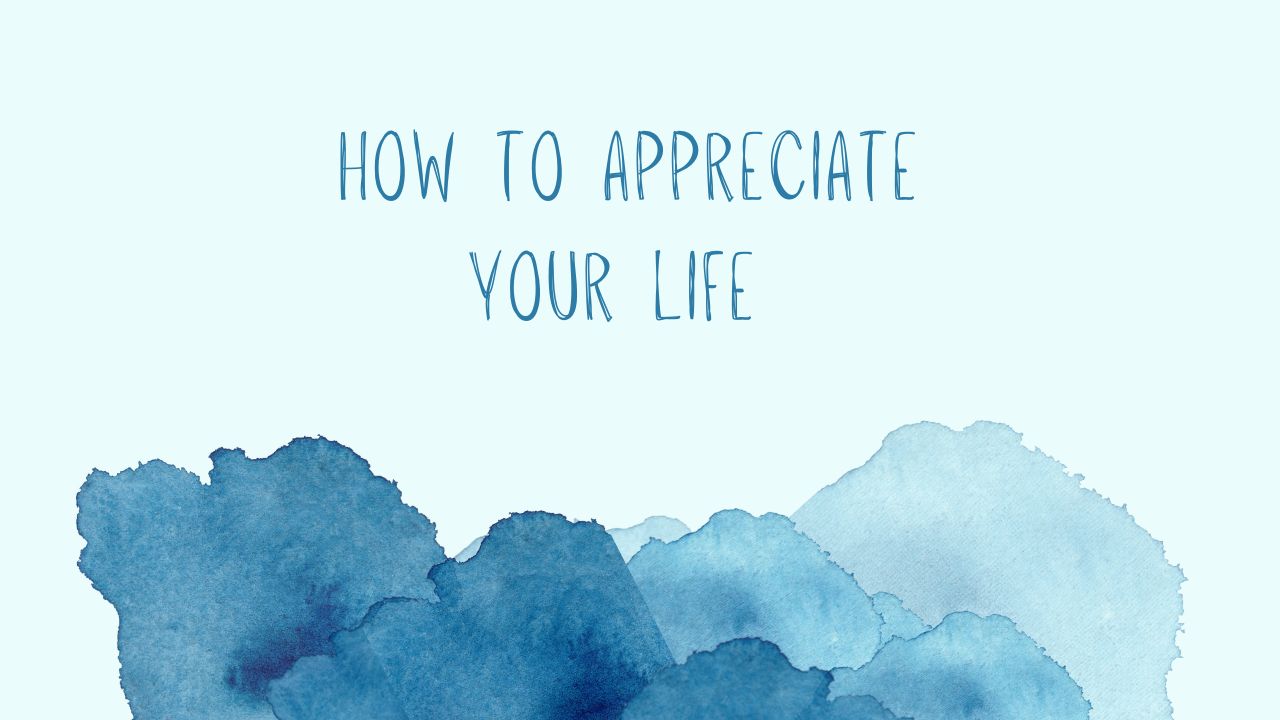Appreciation is the act of paying attention to what enriches our lives. It requires no special skills and no extra resources, yet caught in the weeds of our day to day we often struggle to do this. Instead,
1) We take things for granted
While we might once have longed for what we now have, we have got used to it and don’t see its value anymore.
2) We compare what we have with others
Envy blinds us to the good we already possess. We can’t be content with our salary, our house, or even our partner if we compare them unfavourably with someone else’s.
3) We lose sight of the good things when bad things happen
Setbacks and difficulties make it harder for us to recall what we value about our lives.
These problems are all, at root, matters of perspective: we think in ways that undervalue what we have. Shakespeare once wrote, ‘There is nothing good or bad but thinking makes it so.’ Our estimations of the value of things are not objective readings of some clearly defined value ‘out there’. Rather, they are reflections of ourselves, and of the judgments we make about things.
Consider how we often judge the value of things in relative terms:
· How does this compare with what others have? (Social comparison)
· How expensive is this? (Price)
· How common is it? (Rarity)
These questions all determine a thing’s value in relation to other things. Its value doesn’t stand on its own.
Unfortunately, this kind of thinking can be an impediment to appreciation. When we focus too much on these questions, we fail to pay attention both to the thing itself and what it does for us. One way to develop a more appreciative attitude, then, is to focus more on your own personal fulfilment. Instead of asking these comparative questions, ponder the simpler, more direct question:
· How does this enrich my life?
Consider some small joys: fresh sheets, unusual cloud patterns, a long lunch with friends. The value of these things need not be captured by their rarity or price. Just as we may possess something expensive and rare and get little satisfaction from it, we can derive great enjoyment from the simplest and most common things.
By tuning in to our own feelings and needs, we can dramatically increase our appreciation of what we have. How does this person or thing make me feel? What needs do they satisfy? These questions help us to drown out the noise of comparison and pay closer attention to what we truly value.
This isn’t the only strategy we can use to become more appreciative. Instead of avoiding comparisons, we can change the comparisons we make. If we think of value as a scale, then for any given category there will always be things of greater value. However, there will also always be things of lesser value! We always have the ability to make more favourable comparisons, and it’s only a kind of masochistic intransigence on our part to insist we always make unfavourable ones.
One way to change our perspective for the better is to change our perception of rarity. We intuitively value things more when they are uncommon. To think of something being valuable, then, we need only consider that it is rarer than we often suppose.
Imagine that you have just been given a cancer diagnosis; you have only a few months to live. The realisation of this fact may lead you to view your life with a completely new lens. The good things you appeared to have in abundance are now scarce. Weekly salsa dancing classes with my partner – how many more of these will I have before I die? How many more sunsets will I see by the beach? How many trips to my favourite cinema? In the shadow of our imminent death, these things appear rarer to us, so they also look more valuable.
Fortunately, you don’t need to experience a cancer diagnosis to benefit from this kind of thinking. As the philosopher Will Irvine notes in his book ‘the Stoic Challenge’, for everything you do, there will in fact be a last time that you will do it. There will be a last time you eat a strawberry, have a bath, or go ice skating. If we keep this in mind – in the spirit of gentle acknowledgement rather than morbid rumination – we can refocus our attention on the present moment and better notice what we value about it. While the event may not in fact be any rarer, the perspective of our mortality gives it the sheen of special significance, and therefore makes it seem more valuable.
The ‘last time’ meditation is just one of many perspective hacks we can use to boost our capacity for appreciation. I have borrowed several of these from Will Irvine, who in turn borrows them from the Stoic philosophers. Similarly, I have taken exercises from Alan Watts, and from the philosopher and teacher Jason Buckley. To explore the ‘Chinese farmer’ story in more depth, have a look at this video narrated by Watts.





